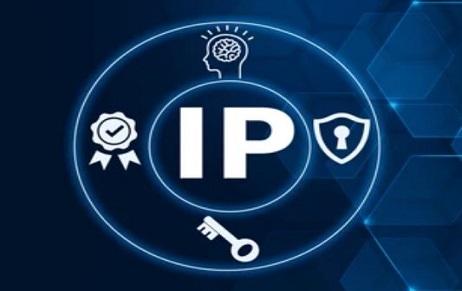Introduction The human mind is a marvel with an astonishing potential to transform ideas into…
Grant of Compulsory License in India: Its Provisions and Need in Several Industries in India.
Introduction
As per World Intellectual Property Rights, a Patent is an exclusive right granted for an invention, which is a product or a process that provides, in general, a new way of doing something, or offers a new technical solution to a problem. To get a patent, technical information about the invention must be disclosed to the public in a patent application[1].
Chapter 5 of the Trade-Related Aspects of Intellectual Property Rights[2] (TRIPS) deals with Patents. Article 31 of TRIPS deals with the concept of Compulsory Licensing under the title ‘Other Uses Without Authorization of Right Holders’. It outlines the conditions under which Compulsory Licenses can be granted, including cases of national emergencies, public health crises, and anti-competitive practices. Generally speaking, Compulsory Licensing is a legal tool allowing governments to permit others to use patented inventions without the patent holder’s consent. It addresses public interest needs like access to essential medicines or fostering competition.
Through this blog, you will get an idea about what compulsory licensing is, under which provisions is it governed in India, and how it impacts several industries, especially in India.
What is Compulsory Licensing
Compulsory Licensing is like a legal ‘permission slip’ that allows someone other than the patent owner to make, use, or sell a patented invention without the patent owner’s consent. It’s typically granted by the controller under specific circumstances, such as when the patented product or technology is needed for public health or when the patent owner is not using it effectively. It helps ensure important inventions are available to the public when needed, even if the patent holder doesn’t agree.
Compulsory Licensing in India
Provisions for Compulsory Licensing in India can be said to have been derived from Article 31 of the TRIPS. Chapter XVI of the Patents Act, 1970[3] deals with the provisions and procedures related to the granting of Compulsory Licenses in India.
Section 84 of the Patents Act, 1970 mentions who can apply for a Compulsory License, according to which any interested person including an existing licensee can make an application for the grant to the controller.
Speaking about when the application can be made- according to the same section 84, the application for the grant of a Compulsory License can be made any time after the expiration of three years from the date of the grant of the patent.
Section 84(1) of the Patents Act, 1970[4] mentions, at any time after the expiration of three years from the date of the grant of a patent, any interested person may make an application to the Controller for granting of Compulsory license on a patent on any of the following grounds, namely: –
- that the reasonable requirements of the public with respect to the patented invention have not been satisfied, or
- that the patented invention is not available to the public at a reasonably affordable price, or
- that the patented invention has not worked in the territory of India.
Hence, the following may be considered as the conditions for the grant of Compulsory License in India as derived from the above-mentioned provision;
- One of the requirements of a patent is to have an industrial application in the domestic market and be used in the public interest. So, if the innovation is not available in the public domain in a sufficient quantity as needed maybe one can apply for a grant of compulsory license.
- When the innovation is not affordable it is still not accessible to the public in general which again is against the basic requirement of the grant of the patent.
- If the patent is not worked in India on a commercial scale within a reasonable time, it becomes a ground for granting a Compulsory License to a third party so that the public can benefit from the invention to the maximum
- There are many other reasons implied from the provisions for the need for a grant of Compulsory License them being public interest, licensing on dependent patents, and use of government. In India, the government is authorized to use the patented invention by following certain procedures laid down in chapter XVII of the Patents Act, 1970[5].
- When it comes to Compulsory Licenses for Pharmaceutical Products it’s really important as this industry is very critical as it concerns public health and access to medicines. Under Article 31 of TRIPS, World Trade Organization members were allowed to grant special Compulsory Licenses exclusively for producing and exporting affordable generic pharmaceutical products to other member states that cannot domestically produce the needed medicines in sufficient quantities for their patients.
- In India, a similar provision was inserted in the Patents Act, 1970 by way of an Amendment in the year 2005 through section 92A[6], which authorizes the controller to grant a special Compulsory License for the above purposes to the eligible third party for the sake of public health.

When a Compulsory License was granted in India
Despite having an elaborate Compulsory License procedure, it is pertinent to note that in India only one compulsory License has been granted to date and also the first Compulsory License ever granted in the world post-TRIPS agreement. This one and only Compulsory License was granted to a Hyderabad-based generic drug manufacturing company Natco Pharma in the famously known Nexavar case[7] for the generic production of Bayer Corporation’s Nexavar, it is a life-saving medicine, and is related to the treatment of cancer specifically the liver and kidney.
It was granted to Natco Pharma(applicant) for using the patented cancer drug ‘Sorafenib Tosylate’ (compound of Carboxyary Substituted Diphenyl Ureas) (invented drug) sold under the brand name ‘Nexavar’ which was patented by Bayer Corporation (Patentee). The patent for the invented drug was granted in India on 03-03-2008 to the patentee and after applying for the Compulsory License under Section 84 of the Patents Act, 1970, the controller, Order dated 9th March 2012, granted a Compulsory License to the applicant on certain terms which included a 6% royalty to the patentee and the cost of 120 tablets to not exceed Rs. 8880 for one month’s treatment.
Industries under the scope of Compulsory Licensing
Six industries fall under the category of Compulsory Licensing in India[8]
They are listed below:
- Distillation and brewing of alcoholic drinks
- Cigars and Cigarettes of tobacco and manufactured tobacco substitutes.
- Electronic Aerospace and Defense equipment: all type
- Industrial Explosives including detonating fuses, safety fuses, gunpowder, nitrocellulose, and matches.
- Hazardous chemicals
- Drugs and Pharmaceuticals (as per the modified drug Policy issued in September 1994).
The need for a grant of Compulsory License would arise in the Distillation and brewing of alcoholic drinks when there are concerns about monopolistic practices or market dominance by a single entity, which would lead to inflated prices or restricted access to alcoholic beverages. It might also be considered in situations where there is a need to ensure the availability of certain types of alcohol for medical or industrial purposes.0
In the Cigars and Cigarettes of tobacco and manufactured tobacco substitutes Compulsory licensing could be pursued to regulate the tobacco industry more tightly, perhaps to restrict the marketing of harmful products and address public health issues related to smoking, such as ensuring access to smoking cessation aids. Compulsory Licenses in Electronic Aerospace and Defense equipment might be sought to ensure national security or to promote competition within the defense industry, facilitate technology transfer, and support domestic manufacturing capabilities.
In the case of Industrial Explosives Compulsory Licensing might be considered to regulate the production and distribution of explosives to ensure that safety standards are met and to prevent illicit trafficking. Compulsory Licensing when it comes to Hazardous Chemicals could be pursued to regulate the production, distribution, and use of these chemicals to protect public health and the environment.
The most important and needed industry is the Drugs and Pharmaceuticals industry as its importance can be seen when the only compulsory license ever granted in India is granted to the product from this industry. Compulsory Licensing in this industry ensures access to essential medicines, particularly in developing countries, during emergencies, and to promote competition by allowing generic production of patented drugs. It also helps manage intellectual property rights and facilitates technology transfer for local manufacturing, ultimately benefiting public health.
Conclusion
Hence, we can see that Compulsory Licensing serves as a crucial tool across various industries, from pharmaceuticals to defense equipment, addressing public health, safety, and social needs by balancing intellectual property rights with broader interests. This regulatory approach underscores the importance of aligning private interests with the greater welfare of society.
Author : Bhakti Bharat Handifod, in case of any queries please contact/write back to us via email to [email protected] or at IIPRD.
References
[1] https://www.wipo.int/patents/en/
[2] Agreement on Trade-Related Aspects of Intellectual Property Rights (TRIPS) [1994]
[3] Patents Act 1970, Chapter XVI
[4] Patents Act 1970, s. 84(1)
[5] Patents Act 1970, Chapter XVII
[6] Patents Act 1970, s. 92A
[7] Natco Pharma Ltd. v. Bayer Corporation and the Compulsory Licensing Regime in India, (2013) 6 NUJS L Rev 99
[8] https://byjus.com/free-ias-prep/compulsory-license/#:~:text=How%20many%20Compulsory%20Licenses%20have,Office%20on%20March%209%2C%202012.
Other- https://ebooks.inflibnet.ac.in/mgmtp12/chapter/industrial-policy/
[1] World Intellectual Property Rights, ‘Patents’ < https://www.wipo.int/patents/en/ > accessed 02 March 2024
[2] Agreement on Trade-Related Aspects of Intellectual Property Rights (TRIPS) [1994] (15 April 1994) Article 31
[3] Patents Act 1970, Chapter XVI Working of Patents, Compulsory Licensing and Revocation
[4] Patents Act 1970, s 84(1) Compulsory Licenses
[5] Patents Act 1970, Chapter XVII Use of Inventions for Purpose of Government and Acquisition of Inventions by Central Government
[6] Patents Act 1970, s 92A Compulsory License for Export of Patented Pharmaceutical Products in Certain Exceptional Circumstances (Amendment of 2005)
[7] Mansi Sood ‘Natco Pharma Ltd. v. Bayer Corporation and the Compulsory Licensing Regime in India’, (2013) 6 NUJS L Rev 99 <https://nujslawreview.org/wp-content/uploads/2016/12/mansi.pdf> accessed 02 March 2024
[8] Byju’s exam prep ‘What is Compulsory Licensing?’ < https://byjus.com/free-ias-prep/compulsory-license/#:~:text=How%20many%20Compulsory%20Licenses%20have,Office%20on%20March%209%2C%202012. > accessed 02 March 2024

